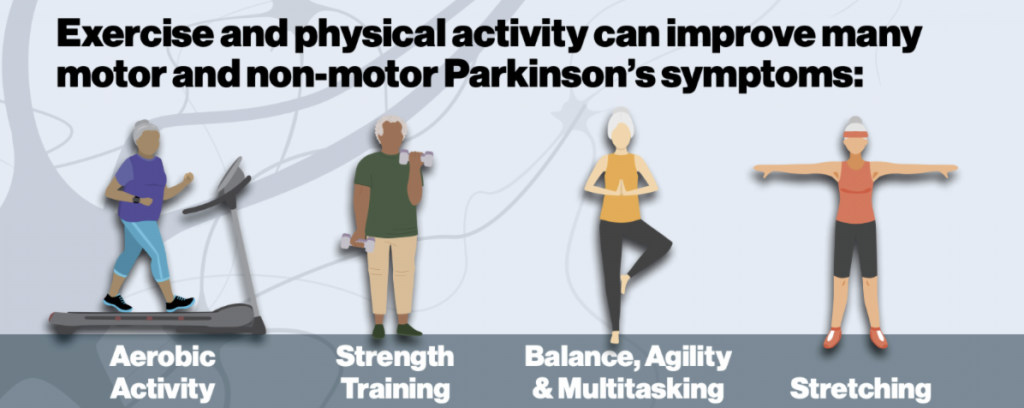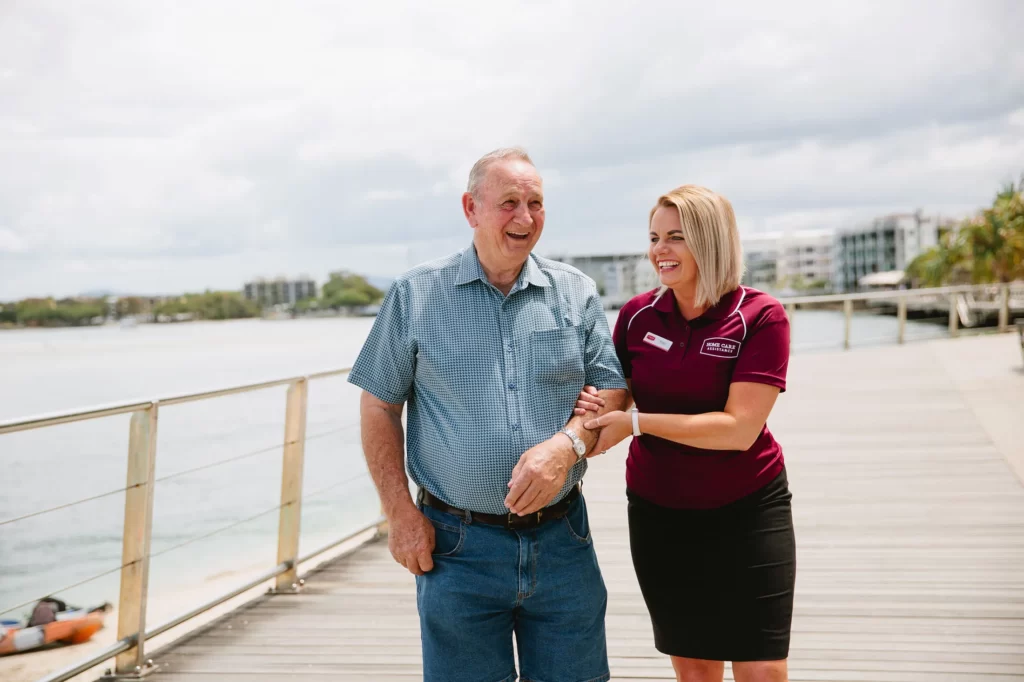It’s our mission to ensure the highest quality standards of specialty caregiving and assistance for you and your loved ones. We’ve partnered with the Parkinson’s Foundation to allow us to incorporate the latest research into our customised plans for those living with this disease. This partnership gives us access to cutting-edge breakthroughs in medication and treatments, which we can then discuss with our families.
We understand that living with Parkinson’s disease can be difficult, both for the individual and the family. As a chronic, neurodegenerative disease it can be as emotionally difficult as it is physically. At Home Care Assistance, our philosophy is based on a “family first” approach to the way we treat and serve our families.
According to Parkinsons NSW:
We understand that the neurones in a particular area of the brain known as the substantia nigra are damaged or lost. This results in a reduction in dopamine, a powerful brain chemical that assists in coordinating movement.
There is no cure for Parkinson’s disease, but there are effective treatment and therapy options that can help manage symptoms, so people with Parkinson’s disease can continue to enjoy many years of independent and productive lives.
There is still much to learn about what causes Parkinson’s disease, but research is ongoing and there is every hope that outcomes for people with Parkinson’s disease will continue to improve and that ultimately there will be a cure. In the meantime, community organisations like Parkinson’s NSW will continue to offer information, education, counselling, advocacy and support.
*Low end estimate comes from 2015 study by Deloitte Access Economics. The high end estimate comes from 2018 research by a joint team from University of Melbourne and Monash University (Ayton, D., Ayton, S., Barker, AL., Bush, AI and Warren, N. (2018). Parkinson’s disease prevalence and the association with rurality and agricultural determinants. Parkinsonism & Related Disorders).
5 Exercises for Parkinson’s Disease
Ideal Activities for Seniors Who Have Parkinson’s

Our transportation assistance is a valuable aspect of our Parkinson’s care. Driving is often a challenge and a safety concern for those living with the disease. Home Care Assistance provides transportation to appointments, the shops as well as other locations and commitments. This takes a huge weight off the shoulders of family members and allows them to minimise disruption to their own schedules.
Eating a healthy diet is important for those with Parkinson’s disease. A clean and nutrient dense diet is critical because it helps strengthen muscles and bones while reducing muscle atrophy and excess fat accumulation. Home Care Assistance can help prepare healthy meals that will provide your loved one the nutrition he or she needs to maintain optimal health and vitality.
When someone is living with Parkinson’s disease, it becomes difficult to accomplish some of the more common tasks we’re used to doing on our own. We provide assistance with these daily tasks while providing guidance and support to maintain independence.
Our Carers keep a sharp eye on the clock and ensure that your family member or loved one always gets the correct medication on time.
Our skilled and specially trained Parkinson’s disease Carers are sensitive to an individuals needs to move and be independent. They provide mobility support in instances when extra help is needed because of muscular stiffness, shakes or tremors.
One of the most valuable experiences that comes out of our program is the lifelong friendships and support that is developed between individuals and Carers. Having someone around to engage with socially is an essential part of good mental health and we take pride in the relationships that we create.
Parkinson’s disease can be emotionally exhausting and physically demanding, which is why we offer support to individuals and their families through our hands-on care management. At Home Care Assistance, our emphasis on balanced caregiving drives our continued work towards providing a complete and holistic approach to managing and improving the lives of those living with Parkinson’s disease.

For a bit of guidance or immediate help, we’re here for Novocastrian seniors in search for quality aged care to support them in the next chapter of their lives.
Highly Personalised And Flexible Services.Our care workers do much more than just provide personalised care. We're about building real connections and celebrating the unique stories and experiences that each of our clients brings. We aim to make every day a bit brighter and more enjoyable for our clients, especially during the transition from hospital to home care. Our team understand that everyone is different, with their own likes, dislikes and needs that deserve to be heard. We make sure to look after the whole person – their physical health, as well as their emotional and social well-being. We believe it's important for our clients to have a say in their own care. That way, the care we provide really matches what they want and need.
Post-Operative Support Right At Home.The journey from hospital to home can be challenging. At Home Care Assistance Newcastle, we're dedicated to making this transition as seamless and stress-free as possible. We recognise that each person's recovery and homecoming journey is unique, and finding the right support is essential for your well-being. Our team specialises in facilitating smooth transitions from hospital to home, ensuring continuity and enhancement of care. From your first contact with us, we focus on understanding your specific health and recovery needs and care requirements. This enables us to customise our services to suit you perfectly. Our aim is to ensure that your transition home is not just about maintaining care, but improving it
Helping With Discharge, Coordination And TransportOur individualised hospital-to-home care packages can be tailored to suit any requirements. We provide expert care and support every step of the way, including transport from hospital to home and travel to rehabilitation sessions. Once settled at home, we’ll provide ongoing monitoring, reminders and emotional support to facilitate the smoothest possible recovery. We’ll also assist with adapting back to daily habits, including managing new medications, maintaining meal regimens and keeping up with any essential rehabilitation exercises.